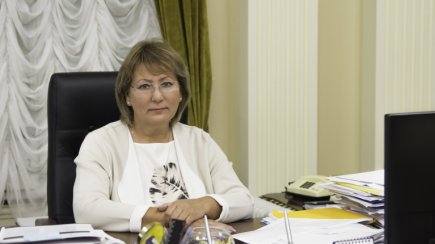Contact center of the Ukrainian Judiciary 044 207-35-46

²²² International Scientific Practical Conference “Social Rights and Their Protection by Administrative Court” is taking place in the Supreme Court. Judges, scholars, lawyers from Austria, Latvia, Germany, Poland and Ukraine are participating in the event.
While opening the event, President of the Supreme Court Valentyna Danishevska remarked that for the Supreme Court it is important to make legal positions of the Supreme Court clear and to let them serve as the best possible protection of people’s social rights.
She informed that in 2019 circuit administrative courts had received for consideration more than 73 thousand cases in disputes on the implementation of public policy in the spheres of labour, employment and social protection of citizens. The bulk (68 %) was represented by claims on compulsory state pension insurance.
Courts sustain about 84 % of claims in social cases. The SC President noted that that was rather high percentage, which testified the mass nature of citizens’ social rights violation on the state’s behalf.
15 % of judgments of first instance courts are appealed in the second instance, and a half of them – in the Supreme Court. In general, social cases represent almost 20 % of cases considered by the Administrative Cassation Court within the SC.
Separately, Valentyna Danishevska told about the consideration of pilot cases. The vast majority of pilot cases considered by the Supreme Court related to disputes on the payment of different categories of pensions, for instance, to internally displaced persons, military servicemen, etc. According to her, during two and a half years the institution of pilot case has already proven its effectiveness. The SC President emphasized that, while talking about the effectiveness, she meant, primarily, fostering the protection of citizens’ rights, but not decreasing the number of applications to the Supreme Court.
Other disputes of mass nature are represented by ones on the payment of one-time allowance to military servicemen, renewal of pension payment to Ukrainian citizens, who had left to take up permanent residence abroad, as well as reviewing considered cases due to declaring some provisions of the laws of Ukraine “On the Status and Social Protection of Citizens-Victims of Chornobyl Disaster” and “On the Public Prosecution Service” as unconstitutional by the Constitutional Court of Ukraine.
Valentyna Danishevska drew attention to the issue of judgments execution, since the number of applications to the ECHR to protect social rights was still high.
Cases on the non-execution of judgments (“Ivanov v. Ukraine” and “Burmych v. Ukraine”) are supervised by the Committee of Ministers of the Council of Europe. Most of measures to be taken by Ukraine are ones of general nature. Their solution is possible due to joint actions of the parliament, government and judicial power.
The SC President underlined that ensuring the execution of judgments of national courts, as well as those of the European Court of Human Rights was a general obligation to citizens and international partners, primarily, the Council of Europe; the effective execution of judgments might increase the level of public confidence in authorities and, particularly, the judicial system.